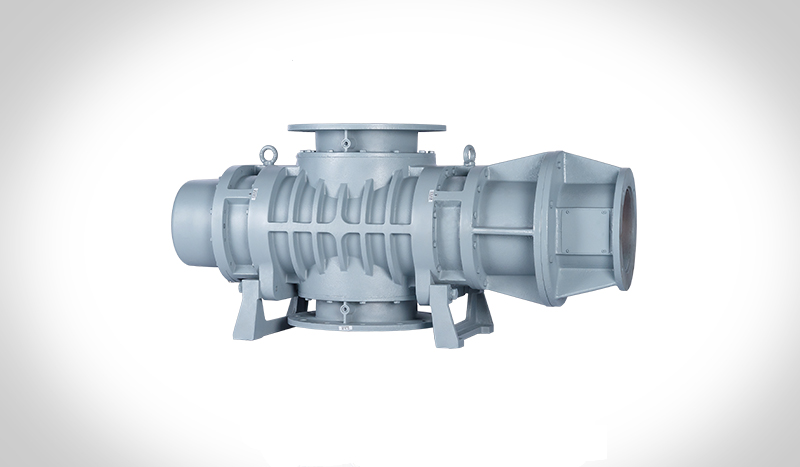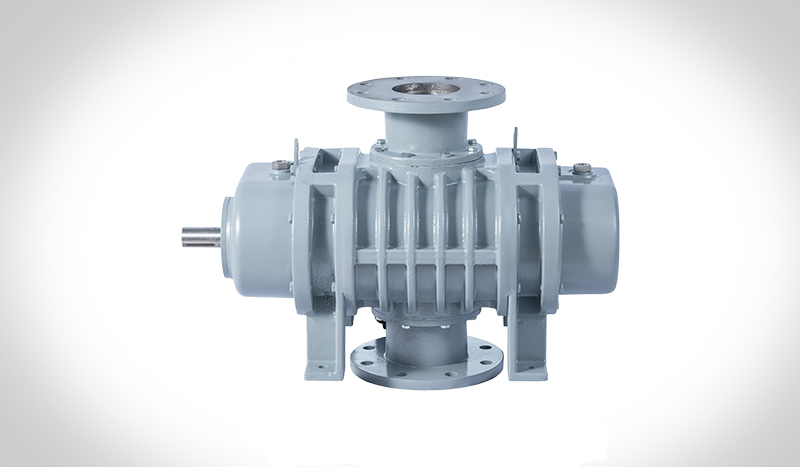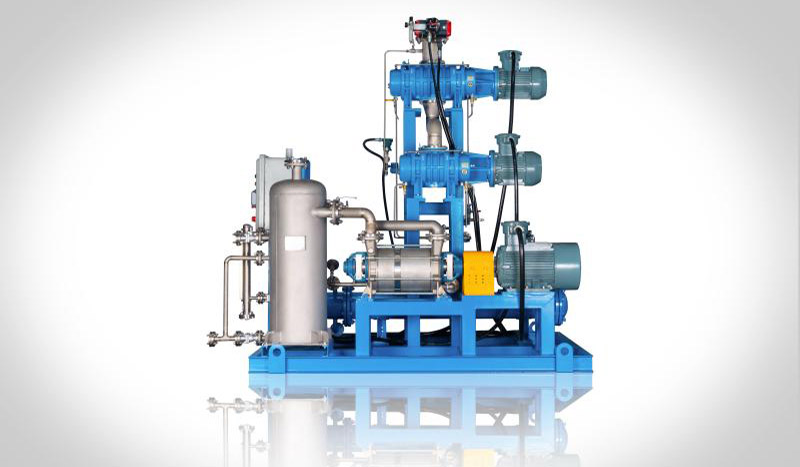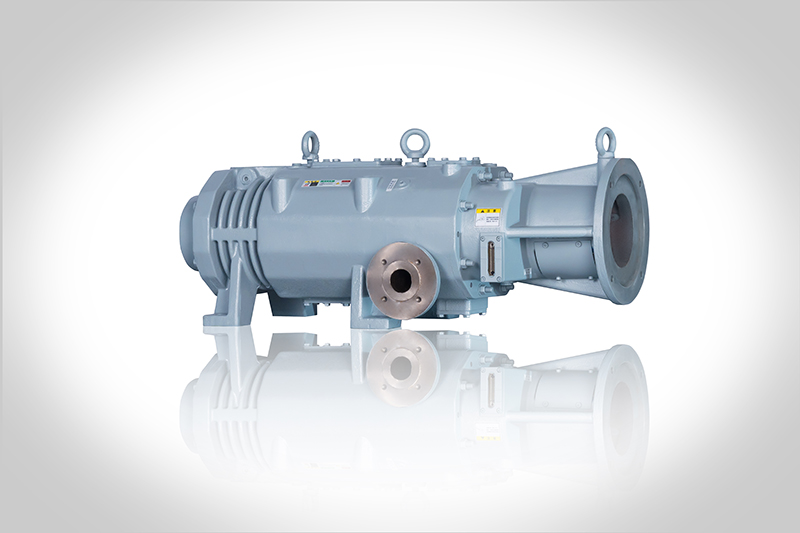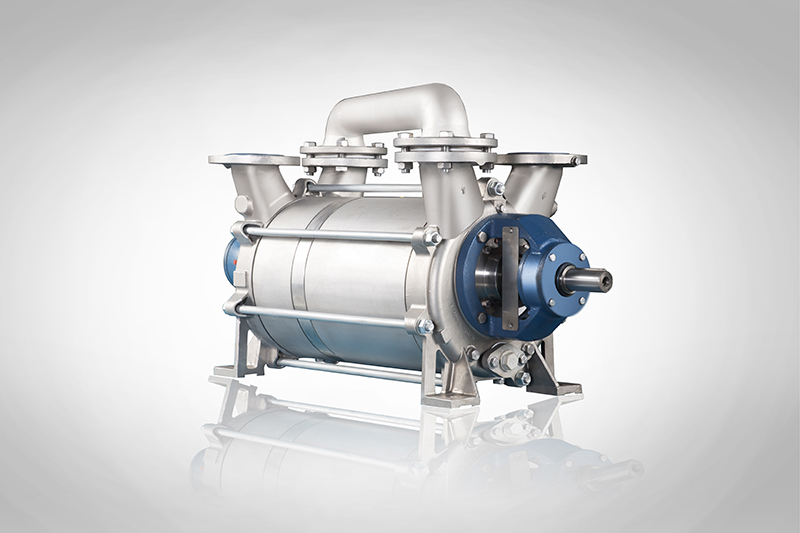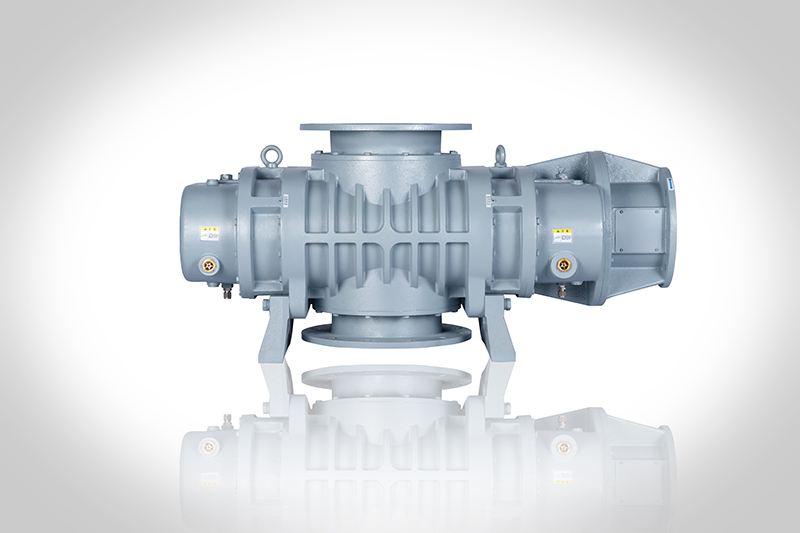Blog
Vacuum Pump in Chemical Industry: Benefits & Types
The chemical industry relies on various technologies for the efficient and safe production of chemicals, and vacuum pumps play a crucial role in this process. Vacuum pumps are used to create low-pressure environments, essential for a wide range of chemical processes. They help remove process gas, vapor, and air from the system, enabling chemical processes to take place at specific temperatures and pressures. In this blog, we will explore the different types of vacuum pumps used in the chemical industry, their benefits, and how to choose the right vacuum pump for your chemical process.
Understanding Vacuum Pumps in the Chemical Industry
Vacuum pumps, including dry vacuum pumps, as the name suggests, are pumps that create a vacuum or low-pressure environment. In the chemical industry, dry vacuum pumps are essential for maintaining the required conditions for various chemical processes. They are part of vacuum systems that enable the removal of process gas, vapor, and air, creating the necessary vacuum level inside a chamber or system. Dry vacuum pumps are used in a wide range of chemical processes, from distillation and drying to filtration and separation. Their efficient operation is crucial for the efficiency, productivity, and safety of chemical manufacturing processes.
Distillation
Solvent Recovery
Drying
Degassing
Molecular Distillation
Pneumatic Conveying
Role of Vacuum Pumps in the Chemical Industry
In the chemical industry, vacuum pumps play a vital role in enabling the efficient operation of chemical processes. One of the key advantages of using liquid ring vacuum pumps in chemical processes is their low maintenance requirements. Pompe Travaini’s liquid ring vacuum pumps have a relatively simple design, with fewer moving parts compared to other vacuum pump technologies. This results in reduced downtime and lower maintenance requirements. Vacuum pumps utilize various vacuum technologies to create the required vacuum level and facilitate chemical processes. When the impeller rotates, the liquid ring is thrown outwards due to centrifugal force. This creates pockets or cavities between the impeller blades in the eccentrically placed cylindrical housing, which gradually fill with gas or vapor. The rotation of the impeller creates a liquid ring on the inside of the housing that seals the spaces between the individual impeller blades, ensuring efficient operation and preventing any leakage of gas or vapor.
Furthermore, vacuum pumps enable the chemical industry to carry out processes at specific temperatures and pressures by lowering the pressure inside the vacuum chamber. This is crucial for processes such as distillation, drying, and crystallization, where precise control over process conditions is essential. Vacuum pumps also assist in the separation of components within chemical processes, allowing the industry to achieve the desired outcomes efficiently.
Overall, vacuum pumps are indispensable for the chemical industry, providing the necessary conditions for a wide range of chemical processes. Their positive displacement capabilities, along with various vacuum technologies, make them an integral part of the industry’s operations.
Importance of Vacuum Pumps for Chemical Processes
Vacuum pumps are of utmost importance in the chemical industry due to their role in enabling and enhancing chemical processes. These pumps create the required vacuum conditions, ensuring the efficiency, productivity, and safety of chemical manufacturing processes.
One of the primary reasons vacuum pumps, such as the compression chamber, are vital for chemical processes is their ability to lower the pressure inside the vacuum chamber. By removing process gas, vapor, and air, vacuum pumps enable chemical processes to occur at specific pressure levels, optimizing their efficiency. This is particularly crucial for processes that involve the evaporation, concentration, and crystallization of substances, where precise control over the vacuum level is essential. The thermal vacuum chamber on the right is used by NASA to expose Hubble Space Telescope components to conditions that they will experience in space. The chamber removes all but the slightest trace of air and reduces the pressure to about a billionth of the normal atmospheric pressure of the Earth.
In addition, vacuum pumps aid in the transfer of materials and the extraction of solvents, contributing to the efficiency of chemical processes. They also play a significant role in the prevention of contamination, ensuring the quality and purity of the final chemical products. By creating the necessary vacuum conditions, vacuum pumps allow the chemical industry to achieve precise control over process conditions, leading to improved quality, increased productivity, and reduced costs.
Therefore, vacuum pumps are of utmost importance for chemical processes, enabling the industry to carry out a wide range of operations efficiently and effectively.
Various Types of Vacuum Pumps Used in the Chemical Industry
In the chemical industry, various types of vacuum pumps are used to cater to different process requirements. Some of the commonly used types of vacuum pumps in the chemical industry include rotary vane vacuum pumps, liquid ring vacuum pumps, and dry screw vacuum pumps.
Each type of vacuum pump has its own operating principle, advantages, and suitability for different chemical processes. Understanding the characteristics of these vacuum pumps is essential for selecting the right pump for specific chemical processes. In the following sections, we will explore the operating principles, benefits, and applications of these vacuum pump types in more detail.
Dry Screw Vacuum Pumps
- Dry screw vacuum pumps offer efficient and reliable vacuum solutions for chemical processes.
- They are well-suited for handling high vapor loads in chemical processes.
- Dry screw vacuum pumps provide energy-efficient vacuum solutions for the chemical industry.
- These pumps are ideal for processes requiring high pumping speeds and low ultimate pressure.
- They are designed to minimize process heat, making them suitable for temperature-sensitive applications.
Liquid Ring Vacuum Pumps
- Liquid ring vacuum pumps are extensively used in the chemical industry for their robustness and handling of liquid and chemical vapor loads.
- They are suitable for processes involving corrosive and condensable vapor loads.
- Liquid ring vacuum pumps offer flexibility, making them suitable for various chemical processes.
- These pumps are known for their low-maintenance requirements, contributing to cost-effective operations.
- They provide reliable performance in demanding chemical process conditions.
Roots Vacuum Pumps
- Roots vacuum pumps, also known as positive displacement pumps, are utilized for processes requiring high vacuum flow rates.
- They are capable of handling large volumes of process gas, making them suitable for chemical industry applications.
- Roots vacuum pumps contribute to the efficiency of chemical processes by providing consistent vacuum levels.
- These pumps are known for their reliability and low energy consumption, benefiting chemical industry operations.
- They play a crucial role in creating the required vacuum conditions for chemical processes.
High-Ultrahigh Vacuum Pumps
- High-ultrahigh vacuum pumps play a critical role in achieving extremely low pressure levels necessary for surface analysis and thin film deposition in the chemical industry.
- These pumps allow precise control over vacuum conditions, ensuring ultra-clean process environments.
- Their contribution to maintaining quality and precision in chemical processes is notable, making them indispensable in chemical manufacturing.
Benefits of Using Vacuum Pumps in Chemical Industry
Vacuum pumps in the chemical industry offer efficient vapor pressure control, crucial for various processes. With modern vacuum pumps, pharmaceutical and organic solvent industries benefit from their notable degree of compression effect. Additionally, these pumps feature minimal power consumption, ensuring cost-effectiveness. In the chemical industry, these pumps play a vital role in the first stage of compression, facilitating the initial compression of the process gas. This first stage compression allows for further compression in subsequent stages, ultimately achieving a lower ultimate pressure. Efficiency and Productivity
Efficiency and Productivity
Efficiency and productivity are of utmost importance in the chemical industry. The use of positive displacement, and dry screw vacuum pump technologies can optimize operations. These cutting-edge technologies are capable of efficiently managing both high and low temperatures, making them well-suited for a wide range of chemical processes. Moreover, the latest screw vacuum pumps have shown impressive advancements in power consumption and compression processes, greatly benefiting the pharmaceutical sector. In particular, the dry screw vacuum pump stands out for its ability to compress the process gas without the need for an operating fluid, providing a significant advantage in terms of cost savings and environmental impact. The compressed and transported gas is then released through the gas outlet, ensuring efficient operation and minimizing environmental impact.
Safety and Environmental Impact
Vacuum pumps are essential components of chemical industry equipment, as they play a critical role in ensuring safety standards are met while minimizing environmental impact. These systems help adhere to environmental regulations by preventing the release of harmful gases and reducing emissions. Vacuum pumps are also efficient at managing potentially dangerous by-products, promoting safer and more eco-friendly chemical processes. In addition, vacuum pumps can be used for a variety of applications such as distillation and filtration, making them versatile tools for chemical processing plants. By using vacuum pumps in their operations, chemical industries can prioritize safety and eco-friendliness while maintaining high production efficiency levels.
Cost-Effectiveness and Energy Conservation
Vacuum pump technologies play a vital role in achieving energy efficiency within chemical processes, contributing to reduced power consumption and cost savings. These systems significantly support the economic efficiency of chemical manufacturing, aligning with sustainable practices by conserving energy and resources. Implementing these technologies aids in minimizing operational costs while ensuring environmental responsibility. The eccentric placement of impellers and different compression systems further enhances the cost-effectiveness and energy conservation of vacuum pumps in the chemical industry.
Choosing the Right Vacuum Pump for Your Chemical Process
Choosing the appropriate vacuum pump is crucial for optimizing chemical processes and significantly impacting manufacturing efficiency. Evaluating various factors, such as process conditions and customized vacuum systems, is essential in determining the most suitable vacuum pump technology for chemical applications. Additionally, ensuring the required pumping speed at operating pressure and the required pump downtime is vital for selecting the right vacuum pump for chemical processes. Considering different types of vacuum pumps, such as dry screw vacuum technology and liquid ring vacuum pumps, can further enhance the performance and reliability of chemical processes. The nominal pumping speed of the vacuum pump and the eccentric placement of the impeller are important considerations when choosing the right vacuum pump for chemical processes. Understanding the compression systems and precise manufacturing of vacuum pumps is vital for achieving economic efficiency and energy conservation in the chemical industry. The power consumption of the vacuum pump, which is impacted by the viscosity of the operating fluid, ultimately affects the overall efficiency of the chemical processes. In practice, ethylene glycol, mineral oils, or organic solvents are often used as operating fluids in liquid ring vacuum pumps to create the liquid ring, which influences the vacuum pump’s performance.
Factors to Consider
Factors such as the operating temperature and pressure levels play a crucial role in determining the appropriate vacuum pump for chemical processes. The properties of the pumped medium and the required vacuum level are critical considerations when selecting a vacuum pump. Additionally, process control and conditions significantly influence the effectiveness of the chosen vacuum pump. It is important to consider the compatibility of pump materials with the process fluid and ensure precise manufacturing and minimal clearance for the reliable operation of vacuum pumps. By assessing these factors, chemical industries can optimize their processes and enhance economic efficiency while aligning with sustainable manufacturing practices.
Comparing Different Types of Vacuum Pumps
When comparing different types of vacuum pumps, it’s essential to understand their operating principles. Variations in volumes, compression systems, and stages distinguish the technology of each type of vacuum pump, offering specific advantages for various chemical processes. Evaluating energy consumption and economic efficiency aids in the comparison, as does recognizing notable differences in vacuum levels, ultimate pressures, and compression heat among the diverse types of vacuum pumps. This comparison is crucial for industries like pharmaceuticals, where customized vacuum systems enhance performance and reliability, and for applications involving organic solvents, high temperatures, low ultimate pressures, and compression stages.
Conclusion
In conclusion, vacuum pumps play a crucial role in the chemical industry, contributing to the efficiency, safety, and cost-effectiveness of various processes. By understanding the different types of vacuum pumps and their specific benefits, you can make informed decisions when choosing the right equipment for your chemical processes.
When selecting a vacuum pump, consider factors such as the desired level of vacuum, flow rate requirements, chemical compatibility, and energy efficiency. Comparing different types of vacuum pumps will help you determine which one best suits your needs.
At Vacculex, we offer a wide range of vacuum pumps for the chemical industry. Whether you need a dry screw pump, liquid ring pump or roots pump, we have the solution for you. Contact us today to get quotes and explore how our vacuum pumps can enhance your chemical processes.
Downloads For The Chemical Industry
Accessing Vacculex downloadable resources provides valuable insights into vacuum pump technologies for the chemical industry. These resources offer detailed information on the benefits and applications of vacuum pumps in chemical processes, including data on the nominal pumping speed of the vacuum pump and the power consumption of different compression systems. By utilizing available downloads, you can gain a better understanding of the role of vacuum pumps in enhancing chemical manufacturing processes and make informed decisions about the types and specifications of vacuum pumps best suited for their specific needs.

